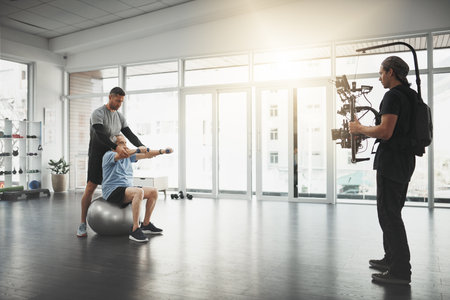Understanding Knee Injuries in Everyday Life
Knee injuries are a common concern across the UK, affecting people from all walks of life—whether you’re a keen footballer on the weekend, a daily commuter, or someone who enjoys leisurely countryside walks. The knee is a complex joint and susceptible to a range of injuries, including ligament strains (such as ACL or MCL tears), cartilage damage, meniscal injuries, and patellar dislocations. Many knee problems arise not just from high-impact sports but also from everyday activities like slipping on wet pavements, tripping on uneven ground, or even overuse through repetitive movement at work.
These injuries can have a significant impact on day-to-day mobility and overall wellbeing. Even minor knee issues may limit your ability to climb stairs, walk to the shops, or participate in social activities, leading to frustration and sometimes isolation. In more severe cases, pain and reduced mobility can affect mental health and independence. Understanding how these injuries occur and their wide-ranging effects is essential for developing a holistic approach to recovery—one that goes beyond immediate medical treatment to include nutrition, lifestyle changes, and emotional support tailored to life in the UK.
2. The Role of Nutrition in Healing
A well-rounded approach to knee injury rehabilitation goes beyond exercise and rest; it begins at the dining table. In the UK, a balanced diet rooted in local produce and traditional fare can be a powerful ally in recovery. Proper nutrition not only supports tissue repair but also helps to reduce inflammation and speed up the healing process.
How a Balanced British Diet Supports Recovery
The British diet, when thoughtfully planned, offers an abundance of nutrients critical for healing. Incorporating lean proteins such as fish (like cod or mackerel), poultry, and plant-based sources like lentils provides amino acids necessary for rebuilding damaged tissues. Complex carbohydrates from wholegrain breads, oats, and root vegetables fuel energy needs during rehabilitation. Healthy fats from rapeseed oil, nuts, and oily fish help modulate inflammation.
Key Nutrients for Tissue Repair and Inflammation Control
| Nutrient | Role in Recovery | British Food Sources |
|---|---|---|
| Protein | Supports muscle and tissue repair | Lean meats, eggs, beans, fish |
| Vitamin C | Aids collagen formation for ligaments and cartilage | Blackcurrants, broccoli, bell peppers |
| Omega-3 Fatty Acids | Reduces inflammation and promotes joint health | Mackerel, salmon, flaxseed oil |
| Zinc | Boosts immune function and cell growth | Pumpkin seeds, beef, wholemeal bread |
| Calcium & Vitamin D | Strengthens bones supporting the knee joint | Dairy products, fortified cereals, sunlight exposure for vitamin D synthesis |
| Antioxidants | Minimise oxidative stress on recovering tissues | Berries, green leafy vegetables, tomatoes |
Integrating Local Flavours into Your Recovery Plan
Recovery meals need not be bland or repetitive. Embracing classic British staples—such as a vegetable-rich cottage pie with lean beef or a simple grilled salmon with new potatoes and steamed greens—ensures both nutritional adequacy and comfort. Adding herbs like parsley or thyme not only enhances flavour but may contribute additional anti-inflammatory compounds.
The focus should remain on variety and balance: moderate portions of protein with generous helpings of seasonal vegetables and wholegrains will create a strong nutritional foundation for healing. For those who enjoy afternoon tea, swapping out sugary treats for oatcakes topped with low-fat cheese or fresh fruit can provide sustained energy without excess calories.
A mindful approach to eating, rooted in local foods and traditions, transforms nutrition into an essential tool for holistic knee injury recovery.

3. Lifestyle Adjustments That Make a Difference
When it comes to holistic recovery from a knee injury, making sensible lifestyle adjustments is as crucial as nutrition or clinical care. These changes not only support the healing process but also empower you to regain confidence in your daily routines. Below, I share practical, engineering-minded strategies that can be realistically incorporated into everyday life.
Pacing Yourself: The Art of Balance
Pacing is fundamental for effective rehabilitation. Instead of pushing through pain or fatigue, it’s important to break up tasks and rest before symptoms worsen. For example, instead of tackling all your chores in one go, try spreading them throughout the day. This ‘little and often’ approach, commonly advocated by physiotherapists across the UK, helps prevent setbacks and supports gradual improvement.
Physical Activity: Gentle Movement Matters
While rest is vital initially, remaining sedentary for too long can hinder recovery. Incorporate gentle activities such as walking on even ground or low-impact exercises recommended by your physiotherapist. British weather isn’t always forgiving, but indoor activities—like resistance band routines or simple stretches—can keep you moving regardless of the season. Aim for consistency over intensity; small, regular sessions are more effective than sporadic bursts of activity.
Mindfulness: Supporting Mental Wellbeing
Knee injuries often impact not just physical function but also emotional resilience. Practising mindfulness—through guided meditation, breathing exercises, or simply taking time to notice your surroundings—can help manage frustration and anxiety during rehabilitation. Many NHS trusts now offer mindfulness courses online, reflecting its growing acceptance in UK healthcare as part of a holistic recovery plan.
Integrating Changes Into Daily Life
Returning to familiar routines can be daunting post-injury. Plan ahead: use aids like walking sticks if needed, prioritise accessible routes (the UK’s public transport network is increasingly step-free), and don’t hesitate to ask for help with heavier tasks. Remember, rehabilitation isn’t a race; respecting your body’s pace lays the foundation for a robust and lasting recovery.
4. Physical Therapy and Exercise: What Works?
When recovering from a knee injury, physical therapy is a cornerstone of holistic rehabilitation. The NHS and local UK community support networks frequently emphasise the importance of evidence-based physiotherapy approaches, practical at-home exercises, and accessible resources to promote optimal recovery.
Physiotherapy Approaches Recommended by the NHS
NHS physiotherapists generally begin with a tailored assessment to identify the specific nature and severity of the knee injury. They then develop a personalised rehabilitation plan that may include:
- Manual Therapy: Hands-on techniques to improve joint mobility and reduce pain.
- Strengthening Exercises: Targeted routines to build muscle around the knee, improving stability.
- Range-of-Motion Activities: Gentle movements designed to restore normal knee flexibility.
- Gait Training: Guidance on walking correctly post-injury to avoid further strain.
At-Home Exercises: Staying Consistent
The consistency of exercise outside clinic sessions is vital for sustained progress. Physiotherapists typically provide patients with an at-home programme that focuses on safe, low-impact movements. Below is a table summarising commonly recommended at-home exercises along with their primary benefits:
| Exercise | Main Benefit | How Often |
|---|---|---|
| Quad Sets | Strengthens thigh muscles, stabilises knee | Daily, 10-15 reps x 2 sets |
| Straight Leg Raises | Improves muscle endurance in the leg | Daily, 10-15 reps x 2 sets |
| Heel Slides | Aids flexibility and range of motion | Daily, 10-20 reps x 2 sets |
| Standing Hamstring Curls | Strengthens back of thigh for balanced support | 3-4 times per week, 10 reps x 2 sets |
| Calf Raises | Enhances ankle and knee stability | 3-4 times per week, 10 reps x 2 sets |
Community Resources and Local Support Networks
The UK offers a variety of local resources that can supplement individual rehabilitation efforts. Many NHS Trusts run group classes or workshops led by registered physiotherapists. In addition, local leisure centres often offer gentle yoga, Pilates, or aqua-aerobics sessions specifically adapted for those with joint injuries. Peer support groups—such as those facilitated through Arthritis Action or Versus Arthritis—can provide encouragement and practical advice throughout the recovery journey.
Navigating Local Services: Where to Begin?
If you’re unsure where to start, your GP or NHS physiotherapist can signpost you to reputable community programmes and help you access resources suited to your needs. Online directories such as the NHS website or local council pages are also helpful for finding nearby classes or support groups.
The Importance of Professional Supervision
No matter which exercise path you choose, regular check-ins with a healthcare professional are essential for monitoring progress and preventing setbacks. This integrated approach ensures your recovery remains safe, effective, and in tune with best practices widely adopted across the UK health landscape.
5. The Importance of Emotional and Community Support
Recovering from a knee injury is not just about physical healing—emotional wellbeing plays a critical role in holistic rehabilitation. Often, the psychological impact of injury, such as frustration, anxiety, or isolation, can slow progress if left unaddressed. Recognising these challenges is the first step towards building resilience throughout your recovery journey.
The Psychological Aspect of Recovery
It’s natural to experience a range of emotions during rehabilitation. Setbacks or slower-than-expected progress can lead to disappointment, while limitations in mobility might contribute to feelings of dependency. Acknowledging these emotions and discussing them openly with trusted individuals can help prevent stress from becoming overwhelming.
The Value of Family and Friends
Support from family and friends forms the backbone of emotional stability. Whether it’s helping with daily tasks, offering words of encouragement, or simply listening when you need to talk, their involvement can boost morale significantly. In British culture, sharing a cuppa with loved ones or having a chat down the local pub are more than just traditions—they’re opportunities for connection and reassurance.
Leveraging Local Community Groups
Beyond personal circles, engaging with local community groups can make a world of difference. Across the UK, numerous support groups and social clubs—often hosted at community centres or through initiatives like U3A (University of the Third Age)—provide spaces for meeting others facing similar challenges. These settings offer both practical advice and camaraderie, which can be especially valuable if you’re feeling isolated.
Practical Steps for Building Support Networks
- Reach out to neighbours or local faith groups for assistance or companionship.
- Join online forums or social media groups focused on knee injury recovery in the UK.
- Contact organisations such as Mind or Age UK for mental health resources tailored to your region.
A Resilient Path Forward
Cultivating strong emotional and community support networks enhances your ability to cope with challenges and maintain motivation. By actively seeking encouragement and remaining open to help—from family dinners to local walking groups—you’ll find recovery becomes a collective effort, rooted in British values of community spirit and mutual aid.
6. Preventing Future Injuries
While recovering from a knee injury is a significant achievement, ensuring long-term knee health requires a proactive approach. For those living in the UK, integrating specific habits into your daily routine can help maintain strong, resilient knees and reduce the risk of re-injury.
Ongoing Exercise and Movement
Regular physical activity tailored to your capabilities is vital for knee health. Low-impact exercises such as swimming, cycling, or brisk walking along local parks or towpaths help strengthen the muscles supporting your knee without placing undue stress on the joint. Participating in group classes like Pilates or yoga at community centres can also improve flexibility and balance, both crucial for injury prevention.
Weight Management
Maintaining a healthy weight lessens the load on your knees, particularly important given the prevalence of sedentary jobs in the UK. Incorporate balanced meals based on NHS guidelines—think plenty of vegetables, lean proteins like fish or chicken, and whole grains. Avoid excessive processed foods and sugary snacks commonly found in convenience shops, opting instead for home-cooked meals or healthy options from local markets.
Ergonomics Suited to UK Lifestyles
Whether you work in an office in London or remotely from home in Manchester, setting up your workspace ergonomically is essential. Use chairs with adequate lumbar support, keep feet flat on the floor, and take frequent breaks to stretch your legs. If you’re cycling or walking as part of your commute—a common practice across British cities—ensure footwear provides good support and that bike seats are adjusted properly to avoid strain.
Routine Check-Ins and Professional Support
It’s wise to schedule regular check-ins with your GP or physiotherapist even after recovery. They can offer advice tailored to your needs and spot early warning signs of potential issues. Community health programmes and NHS resources are valuable tools for ongoing support.
By adopting these strategies—consistent exercise, mindful eating, ergonomic awareness, and professional guidance—you can protect your knees well into the future. A holistic approach not only supports physical recovery but also helps you stay active and independent within the rhythms of everyday British life.


